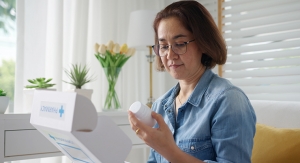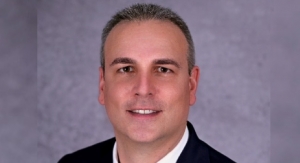By Erik Goldman, Holistic Primary Care12.04.17
People over age 80 now make up the fastest growing segment of the U.S. population, and they are going to reshape everything about healthcare.
Today’s octogenarians are very different from elders of past generations. On the one hand, they—like all of us—have access to technologies that were little more than science fiction when they were kids. Many hold expectations that they can be—and should be—active at levels that would have seemed utterly unrealistic decades ago.
On the other hand, today’s elders are often managing complex chronic conditions with an equally complex mix of drugs (and supplements). And they’re now confronting a massive shortfall in the number of caretakers willing and able to provide the medical and social services they need.
This is a very real impending crisis that seldom makes headlines. Like climate change, the demographic shifts at work in our culture will have impact whether or not we choose to acknowledge them. Consider a few facts:
These are massive and largely unprecedented demographic shifts.
Unlike past eras in which most elders lived with spouses or family members until death, many of today’s seniors are alone and independent. According to the Population Reference Bureau, 27% of all women aged 65-74 lived alone in 2014. For women 75-84, the number hits 42%.
But independent living does not mean lack of need for care services. In fact, the need for home-based eldercare has never been greater.
“At a time when we need more care than ever before, we actually have less of it, because the traditional default care system—women who stay at home—is not there anymore,” said Ai-jen Poo, founder of Caring Across Generations, an advocacy organization striving to move the dialogue about eldercare out of the shrouded realm of the family dinner table and into the public sphere.
“It’s hard to imagine too many issues that touch so many people as this one,” Ms. Poo said at Stanford University’s annual Medicine X conference.
Her organization is working on the local, state and federal level to broaden access to home-based eldercare services, to improve wages and working conditions for care workers, and to increase publicly funded support for families of elders in need.
Ms. Poo described what she termed the “Panini Effect”—a sandwich generation of people, mostly women, struggling to care for their children, and in some cases grandchildren, as well as aging parents all while under tremendous economic and social pressure.
In many families, elders simply don’t get the care and attention they need, not because family members are cruel or irresponsible, but because nobody can afford to stay with them, and paying for care is economically infeasible.
Here are a few more troublesome facts:
Demand for eldercare may be soaring, but wages for caregivers are not.
Home care workers typically earn $10 per hour or less, with few if any benefits. They take home a median of roughly $13,000 annually.
Ms. Poo estimated that 30% of home care workers rely on public assistance for food security. The very people on whom millions of families depend to look after their elders are struggling desperately to make ends meet, often neglecting their own families and their own health as they fill the needs of others.
Needless to say, employment prospects in home care are not very attractive; the hours are long, the work is demanding, the pay is low, and there are few benefits like sick days, vacation time, or health insurance. These workers are disproportionately Black and Latino/Latina. Many are recent immigrants with few other employment options. They are vulnerable to physical, sexual, and economic abuse. There’s much exploitation and little security.
Ultimately, it’s a no-win situation; many families cannot afford the care their seniors need, while paid caregivers are treated as expendable low-paid laborers unable to earn real living wages.
Keeping the Reaper Waiting
Death remains one of the few non-negotiable aspects of life, but for a growing number of people it is increasingly deferrable, said Joseph Coughlin, director of the AgeLab at Massachusetts Institute of Technology.
Speaking at a conference sponsored by the Population Health Consortium last year, Mr. Coughlin pointed out that high-tech medicine is doing a great job of keeping the Grim Reaper waiting.
“We’re simply not dying at the same rates as we used to,” a fact not lost on the funeral home industry, which has been lamenting its declining revenues over the last decade.
Barring a major war, or worldwide climate cataclysm, the longevity trend is likely to continue. “Half the kids born in rich countries today will likely live 100 years,” Mr. Coughlin predicted.
But as we stretch the life-curve, we’re filling in those added years with a lot of chronic disease. Some elders are hale and hearty into their 8th and 9th decades, but many others are not. “Morbidity is high these days, though mortality is not.”
Tech to the Rescue?
If there’s a gaping shortfall in human caregivers, there’s no lack of tech fixes aimed at helping elders live healthier lives.
Mr. Coughlin said a new wave of technology “somewhere between cool and creepy” will be transforming the lives of older people—at least those who can afford it.
Already, there are thousands of websites, smartphone apps, wearable monitors, self-directed diagnostic tests, and “smart” devices appealing to seniors with a message that, “You may be older, or dealing with a chronic condition, but you don’t need to be ‘sick’.”
Companies like Amazon may have as much impact on the day-to-day well-being of the nation’s elderly as any health insurer or medical clinic.
Consider Alexa, Amazon’s sophisticated artificial intelligence system masquerading as a personal assistant. This reassuring “friend” living inside her sleek black cylinder responds to voice commands, and is always ready to order (and deliver) groceries, keep track of appointments, look up information online, provide entertainment, and help you stay connected to family and friends.
Alexa is not yet a fixture in every home. But already some 10 million Americans have embraced her. Many are in their sixth, seventh and even eighth decades of life.
As Elizabeth O’Brien pointed out in a MarketWatch article in 2016, “Alexa wasn’t designed for older adults, and experts say that might be part of its appeal with that demographic. The device avoids the bland aesthetic that has traditionally characterized assistive devices, which turns off consumers who don’t self-identify as old—that is, pretty much everyone.”
MIT’s Mr. Coughlin believes smart devices have the potential to upend healthcare in much the same way as they have reshaped other sectors of the economy. He pointed to just a few of the many transformative technologies on the horizon:
Implications for Industry
What does all of this mean for the supplement industry at large, and the practitioner segment in particular? For one, elders should be on the minds of anyone marketing supplements.
People over age 66 represent roughly 15% of the U.S. population, but 18% of all current users of vitamins, minerals and other supplements, according to the 2015 SORD (Supplements/OTC/Rx Database) study. Nearly one in 10 of these highly engaged senior consumers buys supplements from healthcare professionals.
Speaking at Holistic Primary Care’s fifth annual Practitioner Channel Forum last April, Missy Lowery, head of integrated marketing, Capsugel, now a Lonza Company, noted that 95% of seniors want to remain independent into their most advanced years, yet 82% are unsure about the future of government-funded programs like Medicare.
Today’s seniors are well aware that the social and medical safety net is full of holes through which they could easily fall as they age. More than ever, they recognize the need to self-manage their own health.
Supplements play a big role in that effort. Ms. Lowery noted that according to the Natural Marketing Institute’s 2013 Healthy Aging database, 70% of respondents see nutritional supplements as tools to “make it easier to manage my health.”
She said 81% of seniors surveyed in 2015 had used at least one supplement product in the last 30 days, up from 75% in 2009. The average number of supplements used daily also rose, from 3.9 to 4.3 during that 6-year period. Elders use supplements for a wide variety of reasons, including management of hypertension and other cardiac risk factors, arthritis and joint pain, and glucose control.
Ms. Lowery said the SORD data show practitioners play a significant role in guiding seniors’ product choices. Nearly two-thirds (64%) of supplement users over age 70 said their doctors had recommended they use specific products.
In recent years, the industry has been increasingly focused on the needs and sensibilities of millennials. That’s understandable; people born between 1977 and 1998 are quickly replacing baby boomers as the predominant drivers of the economy.
But as they have families, buy homes and cars, replace their computers and iPhones, and of course spend lots of money on products and services to keep themselves healthy and attractive, the selfie generation will soon be confronting the question of how to take care of their aging parents and grandparents.
They’ll need all the help they can get. The supplement industry has an opportunity to be a valuable ally across the generations.
Erik Goldman
Holistic Primary Care
Erik Goldman is co-founder and editor of Holistic Primary Care: News for Health & Healing, a quarterly medical publication reaching ~60,000 physicians and other healthcare professionals nationwide. He is also co-producer of the Practitioner Channel Forum, the nation’s only executive conference focused on opportunities and challenges in the practitioner segment of the dietary supplement industry. The 2018 Practitioner Channel Forum will be held on May 30-31 at the Hyde Resort Hotel in Hollywood, FL, just prior to the annual meeting of the Institute for Functional Medicine. For more information visit: www.TPCForum.com.
Today’s octogenarians are very different from elders of past generations. On the one hand, they—like all of us—have access to technologies that were little more than science fiction when they were kids. Many hold expectations that they can be—and should be—active at levels that would have seemed utterly unrealistic decades ago.
On the other hand, today’s elders are often managing complex chronic conditions with an equally complex mix of drugs (and supplements). And they’re now confronting a massive shortfall in the number of caretakers willing and able to provide the medical and social services they need.
This is a very real impending crisis that seldom makes headlines. Like climate change, the demographic shifts at work in our culture will have impact whether or not we choose to acknowledge them. Consider a few facts:
- There are already 5 million Americans over 85, according to the U.S. Census Bureau.
- Every day, roughly 10,000 Americans hit their 65th birthday. That’s almost 3.7 million each year. People over 65 are now 14.5% of the total U.S. population, up from 12% in 2000.
- With a life expectancy of 76 for men and 81 for women, people over 65 are likely to live many more years than did those who reached retirement age in the 1950s.
- The number of older Americans needing nursing home care is expected to hit 2.3 million by 2030, up from an actual 1.3 million in 2010, according to the Population Reference Bureau.
- In 2013, there were 5 million people with Alzheimer’s disease. That’s expected to nearly triple to 14 million by 2050.
- In contrast, people between the ages of 26 and 34 represent just 12% of the population; the 35-54 bracket—the prime caretaker years—is only 26% of the total.
These are massive and largely unprecedented demographic shifts.
Unlike past eras in which most elders lived with spouses or family members until death, many of today’s seniors are alone and independent. According to the Population Reference Bureau, 27% of all women aged 65-74 lived alone in 2014. For women 75-84, the number hits 42%.
But independent living does not mean lack of need for care services. In fact, the need for home-based eldercare has never been greater.
“At a time when we need more care than ever before, we actually have less of it, because the traditional default care system—women who stay at home—is not there anymore,” said Ai-jen Poo, founder of Caring Across Generations, an advocacy organization striving to move the dialogue about eldercare out of the shrouded realm of the family dinner table and into the public sphere.
“It’s hard to imagine too many issues that touch so many people as this one,” Ms. Poo said at Stanford University’s annual Medicine X conference.
Her organization is working on the local, state and federal level to broaden access to home-based eldercare services, to improve wages and working conditions for care workers, and to increase publicly funded support for families of elders in need.
Ms. Poo described what she termed the “Panini Effect”—a sandwich generation of people, mostly women, struggling to care for their children, and in some cases grandchildren, as well as aging parents all while under tremendous economic and social pressure.
In many families, elders simply don’t get the care and attention they need, not because family members are cruel or irresponsible, but because nobody can afford to stay with them, and paying for care is economically infeasible.
Here are a few more troublesome facts:
- 75% of the full-time workforce earns less than $50,000 per year.
- The median cost for a one-bedroom apartment in a senior assisted living community is $43,539. It ranges from roughly $30,000 (Missouri) to $80,000 (District of Columbia), according to Consumer Reports.
- The average cost of a private room in a full-service nursing home is over $87,000 per year.
- Average cost for a full-time home care aide in the U.S. is roughly $160 per day, which amounts to about $40,000 per year. Skilled nursing can quickly top $80,000, according to 2017 estimates by the American Elder Care Research Organization.
- Medicare does not cover in-home elder services. Medicaid covers limited home care, but only for those at or below poverty. Private long-term care insurance starts at about $80 per month for a bare-bones plan. At best, only 16% of non-Medicaid eligible Americans over-65 have bought in.
Demand for eldercare may be soaring, but wages for caregivers are not.
Home care workers typically earn $10 per hour or less, with few if any benefits. They take home a median of roughly $13,000 annually.
Ms. Poo estimated that 30% of home care workers rely on public assistance for food security. The very people on whom millions of families depend to look after their elders are struggling desperately to make ends meet, often neglecting their own families and their own health as they fill the needs of others.
Needless to say, employment prospects in home care are not very attractive; the hours are long, the work is demanding, the pay is low, and there are few benefits like sick days, vacation time, or health insurance. These workers are disproportionately Black and Latino/Latina. Many are recent immigrants with few other employment options. They are vulnerable to physical, sexual, and economic abuse. There’s much exploitation and little security.
Ultimately, it’s a no-win situation; many families cannot afford the care their seniors need, while paid caregivers are treated as expendable low-paid laborers unable to earn real living wages.
Keeping the Reaper Waiting
Death remains one of the few non-negotiable aspects of life, but for a growing number of people it is increasingly deferrable, said Joseph Coughlin, director of the AgeLab at Massachusetts Institute of Technology.
Speaking at a conference sponsored by the Population Health Consortium last year, Mr. Coughlin pointed out that high-tech medicine is doing a great job of keeping the Grim Reaper waiting.
“We’re simply not dying at the same rates as we used to,” a fact not lost on the funeral home industry, which has been lamenting its declining revenues over the last decade.
Barring a major war, or worldwide climate cataclysm, the longevity trend is likely to continue. “Half the kids born in rich countries today will likely live 100 years,” Mr. Coughlin predicted.
But as we stretch the life-curve, we’re filling in those added years with a lot of chronic disease. Some elders are hale and hearty into their 8th and 9th decades, but many others are not. “Morbidity is high these days, though mortality is not.”
Tech to the Rescue?
If there’s a gaping shortfall in human caregivers, there’s no lack of tech fixes aimed at helping elders live healthier lives.
Mr. Coughlin said a new wave of technology “somewhere between cool and creepy” will be transforming the lives of older people—at least those who can afford it.
Already, there are thousands of websites, smartphone apps, wearable monitors, self-directed diagnostic tests, and “smart” devices appealing to seniors with a message that, “You may be older, or dealing with a chronic condition, but you don’t need to be ‘sick’.”
Companies like Amazon may have as much impact on the day-to-day well-being of the nation’s elderly as any health insurer or medical clinic.
Consider Alexa, Amazon’s sophisticated artificial intelligence system masquerading as a personal assistant. This reassuring “friend” living inside her sleek black cylinder responds to voice commands, and is always ready to order (and deliver) groceries, keep track of appointments, look up information online, provide entertainment, and help you stay connected to family and friends.
Alexa is not yet a fixture in every home. But already some 10 million Americans have embraced her. Many are in their sixth, seventh and even eighth decades of life.
As Elizabeth O’Brien pointed out in a MarketWatch article in 2016, “Alexa wasn’t designed for older adults, and experts say that might be part of its appeal with that demographic. The device avoids the bland aesthetic that has traditionally characterized assistive devices, which turns off consumers who don’t self-identify as old—that is, pretty much everyone.”
MIT’s Mr. Coughlin believes smart devices have the potential to upend healthcare in much the same way as they have reshaped other sectors of the economy. He pointed to just a few of the many transformative technologies on the horizon:
- Humanoid household robots like SoftBank’s Pepper, which are making their way out of the corporate sector and into peoples’ living rooms. It’s already happening in Japan.
- Smart utensils like the HAPIfork that monitor how much and how fast people are eating, and smart fridges like Samsung’s Family Hub that know exactly what everyone’s eating.
- A “Wize Mirror” enabled with advanced optical scanners and gas sensors that can read faces, detect signs of cardiovascular disease, and offer guidance on prevention.
- Biosensing cars equipped with a sophisticated array of monitors like ECG in the driver’s seat, and Bluetooth-enabled glucose sensors in the dashboard. Ford is already prototyping these sorts of things.
- High-tech toilets that can chemically analyze a user’s ... ahem ... “downloads” for a wide range of biomarkers. These have been available in Japan for at least a decade.
- Online patient-directed forums such as Patients Like Me that help people with serious conditions to connect, trade practical advice, rate treatment options, and self-organize support groups.
Implications for Industry
What does all of this mean for the supplement industry at large, and the practitioner segment in particular? For one, elders should be on the minds of anyone marketing supplements.
People over age 66 represent roughly 15% of the U.S. population, but 18% of all current users of vitamins, minerals and other supplements, according to the 2015 SORD (Supplements/OTC/Rx Database) study. Nearly one in 10 of these highly engaged senior consumers buys supplements from healthcare professionals.
Speaking at Holistic Primary Care’s fifth annual Practitioner Channel Forum last April, Missy Lowery, head of integrated marketing, Capsugel, now a Lonza Company, noted that 95% of seniors want to remain independent into their most advanced years, yet 82% are unsure about the future of government-funded programs like Medicare.
Today’s seniors are well aware that the social and medical safety net is full of holes through which they could easily fall as they age. More than ever, they recognize the need to self-manage their own health.
Supplements play a big role in that effort. Ms. Lowery noted that according to the Natural Marketing Institute’s 2013 Healthy Aging database, 70% of respondents see nutritional supplements as tools to “make it easier to manage my health.”
She said 81% of seniors surveyed in 2015 had used at least one supplement product in the last 30 days, up from 75% in 2009. The average number of supplements used daily also rose, from 3.9 to 4.3 during that 6-year period. Elders use supplements for a wide variety of reasons, including management of hypertension and other cardiac risk factors, arthritis and joint pain, and glucose control.
Ms. Lowery said the SORD data show practitioners play a significant role in guiding seniors’ product choices. Nearly two-thirds (64%) of supplement users over age 70 said their doctors had recommended they use specific products.
In recent years, the industry has been increasingly focused on the needs and sensibilities of millennials. That’s understandable; people born between 1977 and 1998 are quickly replacing baby boomers as the predominant drivers of the economy.
But as they have families, buy homes and cars, replace their computers and iPhones, and of course spend lots of money on products and services to keep themselves healthy and attractive, the selfie generation will soon be confronting the question of how to take care of their aging parents and grandparents.
They’ll need all the help they can get. The supplement industry has an opportunity to be a valuable ally across the generations.
Erik Goldman
Holistic Primary Care
Erik Goldman is co-founder and editor of Holistic Primary Care: News for Health & Healing, a quarterly medical publication reaching ~60,000 physicians and other healthcare professionals nationwide. He is also co-producer of the Practitioner Channel Forum, the nation’s only executive conference focused on opportunities and challenges in the practitioner segment of the dietary supplement industry. The 2018 Practitioner Channel Forum will be held on May 30-31 at the Hyde Resort Hotel in Hollywood, FL, just prior to the annual meeting of the Institute for Functional Medicine. For more information visit: www.TPCForum.com.




























